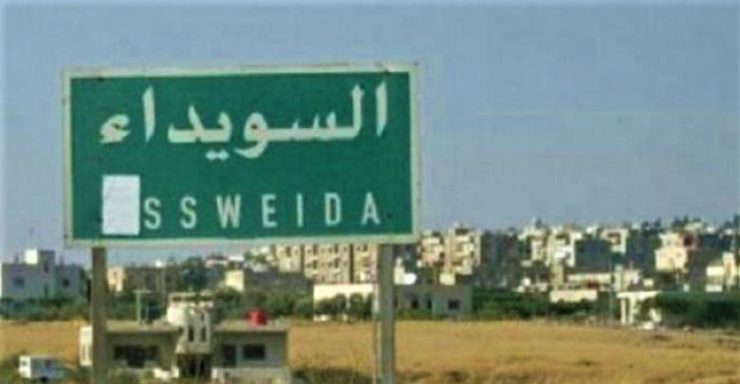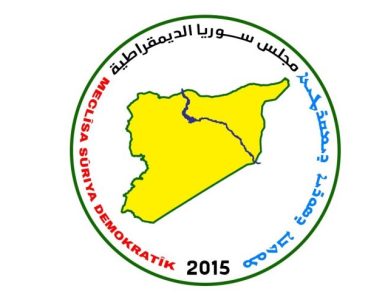As in the rest of other governorates and other Syrian regions, Suwayda governorate in southern Syria had its share of tyranny and terrorism and all attempts to distance itself from the duality of “regime and opposition” did not help it in the face of the struggling powers on Syrian soil.
Suwayda governorate in southern Syria is characterized by the majority of its population belonging to “Almowahadin Druze” sect. This special feature allowed the emergence of strong civil ties that enabled the governorate to position itself differently from the rest of the Syrian regions, and obtain a special political and security situation.
The province has recently witnessed kidnappings and killings by military formations and “misty” affiliation factions, which the residents of the province have described them as being supported by the Syrian government and its ally Russia.
The governorate dilemma
After most of the people of Suwayda governorate refused to join military service in the ranks of the Syrian army because they did not want to participate in the bloodshed of Syrians in other governorates. Yahya Saleh, one of the activists in Swedaa, says that this conviction is derived from the principle that the Syrian blood is forbidden to the Syrian which was established by the leader of the Great Syrian Revolution Sultan Al-Atrash.
The activist Yahya Saleh
According to the Syrian activist from Suwayda, the regime and the Russian forces deliberately concealed the intention to take revenge on the province by making the people believe that they are at risk as a result of not allowing their sons to join the service and facilitated the transfer of armed groups to the borders of the province under the name of ISIS to revenge on its people by attacking the eastern villages of the province in 2017 with Russian security facilities and collusion.This pushes – as activist Saleh says – towards uniting all efforts of Syrians with patriotism and a common destiny to overcome this ordeal and block the way for traffickers of Syrian blood.
National reconciliation based on interests
As Suwayda Governorate, Samir Azzam, coordinator of the Secular Democratic Syndicate of Syrians says, played a pivotal role in liberating Syria from the Ottoman occupation in 1918 and from the French Mandate through Great Syrian Revolution led by Sultan Al-Atrash “1946-1925 and the founding of the Syrian Republic” 1958-1947, adding what the Syrian government and the Russian Federation call “national reconciliation” does not concern them (the people of Suwayda governorate).
Jurist and lawyer, Adel Al-Hadi, says that the government refrained from playing its role in enforcing the law and preventing the spread of weapons, but rather granted such people some kind of immunity, which helped spreading unwanted phenomena in society, such as kidnapping, theft, extortion, and bartering.
While the government forces did not stop arresting civil and political activists from their workplaces or while they were moving among cities.The government did not move in suppression of the phenomenon that society demands to end it. According to Al-Hadi, the Russian forces are also responsible for being the actual controller, but rather all this is done with encouragement and Russian equipment, as they did in the town of Al-Qaria in the countryside of Suwayda recently.
Al-Hadi continues that there is no national reconciliation in southern Syria, but what has been implemented in Daraa are surrender operations by the power of the Russian weapon. National reconciliation was falsely called as a loophole.
Imagining a comprehensive solution to the crisis
Samir Azzam, coordinator of the Secular Democratic Syndicate of Syrians, believes that the final solution to the Syrian crisis should start from two axes: the first of which is to achieve the Syrians’ demands for social, economic and political justice, and this will not be achieved in a central state that deprived the Syrians for decades from political freedoms and deprived most of the Syrian regions from economic development. .
Secondly, according to Azzam, justice will neither be achieved for all Syrians nor for preserving a unified Syria, land and people, except through a solution that leads to establishment of “decentralized democratic republic of Syria” with basic participation of the forces that defended the Syrians “with their spectrums” and defended the sovereignty of the Syrian lands in front of Turkish invaders and their mercenaries : the terrorists of Al-Nusra and ISIS.
Adel Al-Hadi, supports this perception and adds that the political transition must be accomplished in accordance with Resolution 2254 and building a secular democratic system that guarantees the rights of all Syrians, national and cultural, and the national wealth should be distributed fairly on basis of decentralization that allows for balanced development that rebuilds Syria as befits the Syrians and ends the torment of more than half a century.
Media of the Syrian Democratic Council
April 09, 2020




